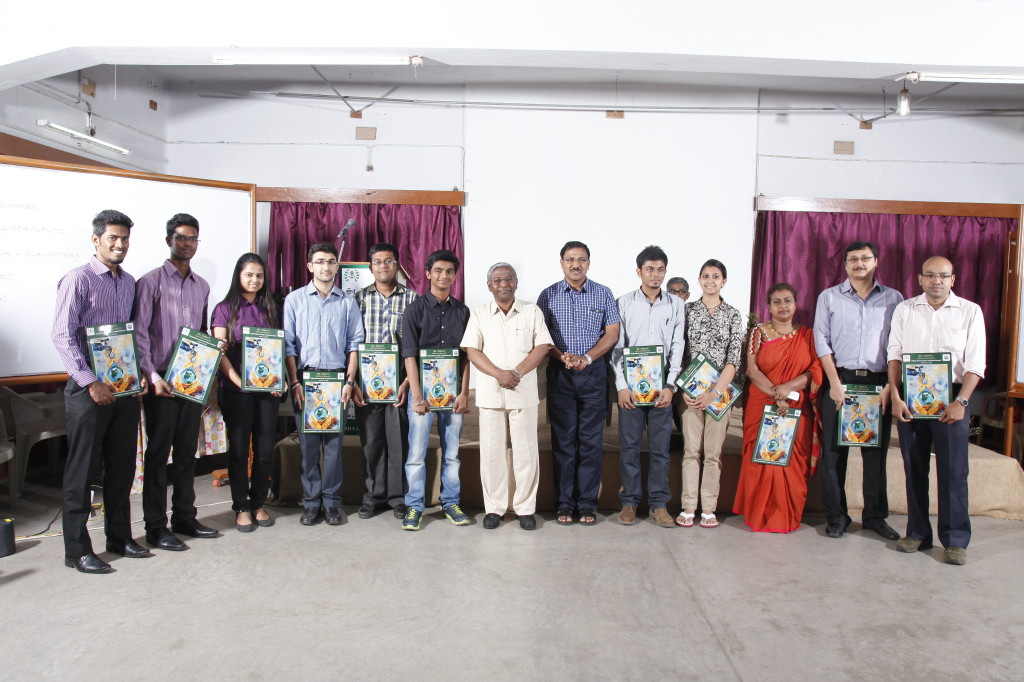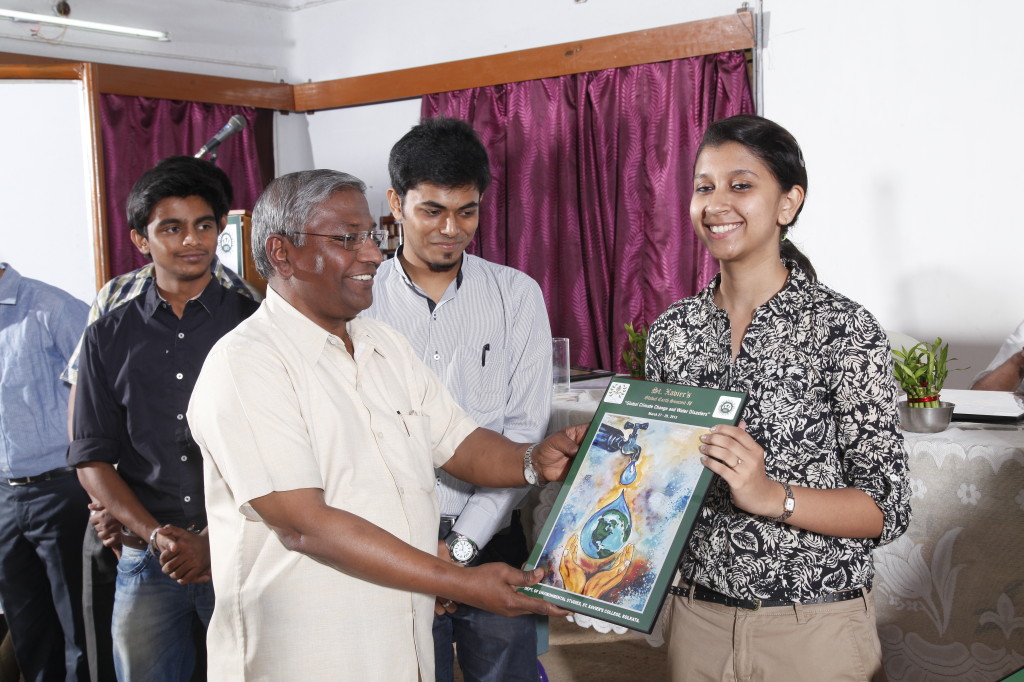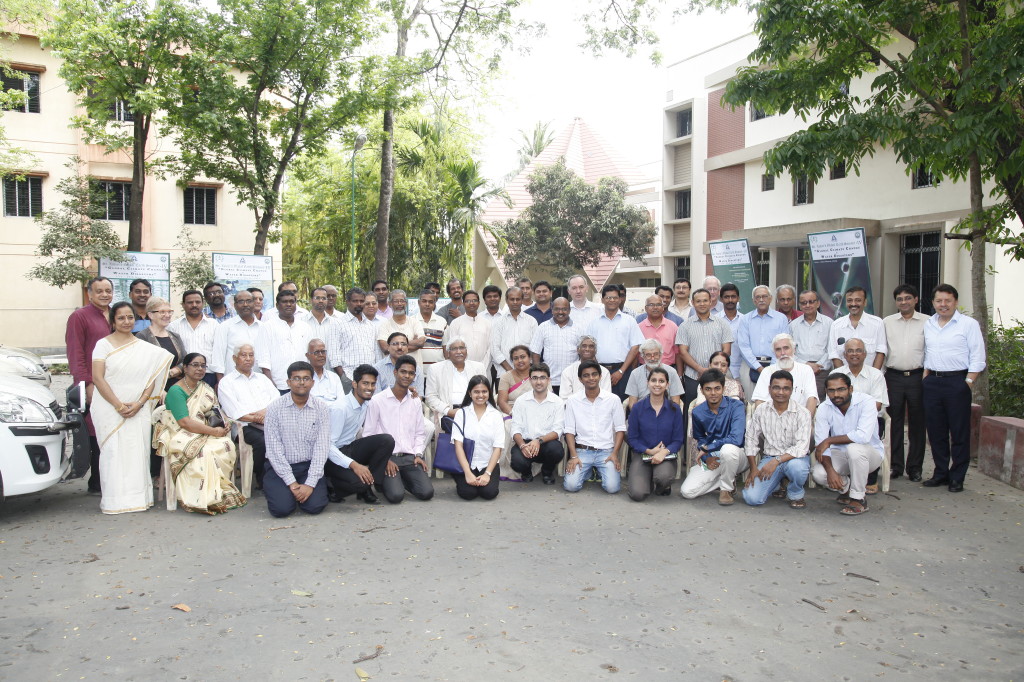 “Thousands have lived without love, not one without water”-W.H Auden
“Thousands have lived without love, not one without water”-W.H Auden
St. Xavier’s College, Kolkata, was host to the 4th Chapter of The Global Earth Summit, an international conference on Global Climate and Water Disasters, a joint initiative of the Jesuit community to discuss and combat water tribulations and promote wholesome-sustainable development.
The Summit was inaugurated on the morning of 27th March 2015 at Dhyan Ashram Kolkata, which witnessed the conglomeration of both national and international ecologists, Jesuits and students, all with the common aim of deciphering the persistent water conundrum. The event was presided over by eminent personalities, Dr. Atiq Rahman, Chief Guest of Honor, Climate Research Scientist, Executive Director of BCAS, Fr. Jose Ignacio Gracia SJ, the GIAN ecology coordinator Jesuit European Social Centre Bruxelles, Belgium , Pedro Walpole SJ, Coordinator, Jesuit Confrence of Asia Pacific Reconciliation with Creation and Fr. layraj Veluswami SJ,Provincial Superior, Calcutta Province, to name a few.
The Summit was a 3 day Conference-cum- Bio tour, where students and Jesuit members initiated to ‘Debate, Discuss and Deduct’ so as to elucidate the prevailing water crisis. A dynamic speaker in his field of expertise, Dr. Atiq Rahman illustrated the scenario in Bangladesh and other neibouring countries where their unrelenting efforts have led to the development of the concept of disaster preparedness, social mobilization and disaster risk management in the light of the water menace.
Particularizing the same, we had amongst us Fr. Paedro illuminating the world at risk, seeking ways to collaborate across different phases in disaster risk reduction that demand a wider range of coordination beyond disaster relief. Budging to stark reality of this highly calculative and corporate world, we had Dr. Fr. Xavier Savarimuthu SJ, Convenor, Global Earth Summit, GIAN Ecology Coordinator for Conference of South Asia, revealing that the industry is ‘ecologically destructive’ high lighting the fringe benefits of the global phenomenon-‘Corporatization of fresh drinking water’
‘The eyes have done, what words could not ‘, the summit was rendered even more impactful, as we proceeded to our field visit to the East Kolkata Wetlands or the Rajarhat Eco Park as everybody would know it, under the hospitality of Mr. Firhad Bobby Hakim, Minister in charge, Municipal Affairs & Urban Development, Govt. of West Bengal and Mr. Debashish Sen, Principal Secretary, Urban Development Government of West Bengal. Rajarhat has been home to rapid urban- industrialization thereby being a major production ground for economic output. So as to preserve and nurture this character and well being of this region, we have in our ‘midst, The East Kolkata Wetlands, the world’s largest waste water fed aqua system with plethora of flora and fauna native to this region. While the aesthetic beauty and ecological up gradation are commendable and an inspiring change in the virtue of being a natural water purifier, as we proceeded to the second day of the summit, we were also spectators of the ruinous impacts of the ‘Aila’ which struck the mangrove lands of Sunderbans, causing destructions to a level apart. This particular bio tour, gave us perspective of disaster mitigation bringing us an inch closer to reality, throwing light on the horrendous threats posed by erratic climate changes and global warming.
How much is too much? Are we in a limbo where we define and weigh progress and development by unhindered and unjustified consumption of commodities? Deriving inspiration from a common man gone global cult, it was indeed a great pleasure having amongst us, on the third day, Mr. Rajendra Sigh, Magsaysay Award Winner Water Man, Tarun Bhagat Sangh, Rajasthan. He was the man to make a difference, because he wasn’t a drop in the ocean but a drop in the dessert, whose value has been appreciated and regarded by his undying efforts to revive over 11 rivers in several districts of Rajasthan. He is revolutionary with a vision of a self sustained state, luscious and green and water abundant. The man is a living example of the power of strength over struggle, on a mission of changing the face of the country in this world water war. He regards himself as a common man, bestowed with the science of common sense, a weapon lethal enough to eradicate the prevailing water crisis in his state. Rajendra Singh has preserved life by gifting it water, creating a remarkable upsurge in the community dealing with water sustainability, thereby inspiring thousands of youth to embark on the path laid by him.
The Global Earth Summit-IV has been home to moving orators and speakers who have not only round conference-d to develop and enact action plans, but to sow the seed of the fact that the moral conscience towards the preservation of nature is imperative. The balance descends when there is absence of parity. Ecological Imbalance maybe fuel to fire to these raving issues of water crisis and disasters that the human race are destined to face. Water is abundant, for everybody’s need, but no one’s greed. It is astonishing that the average hamburger takes 2,400 liters, or 630 gallons, of water to produce, where as more than half the populations of Africa are deprived of clean drinking water. “No water, no life. No blue, no green”. The need of the hour is one, preparation is better than cure, to protect and preserve this gift of water, for now, for tomorrow and for years to come!


 Saswati Banerjee is a final year student in the Department of Mathematics St. Xavier’s College, Kolkata
Saswati Banerjee is a final year student in the Department of Mathematics St. Xavier’s College, Kolkata

good work young lady. keep it up